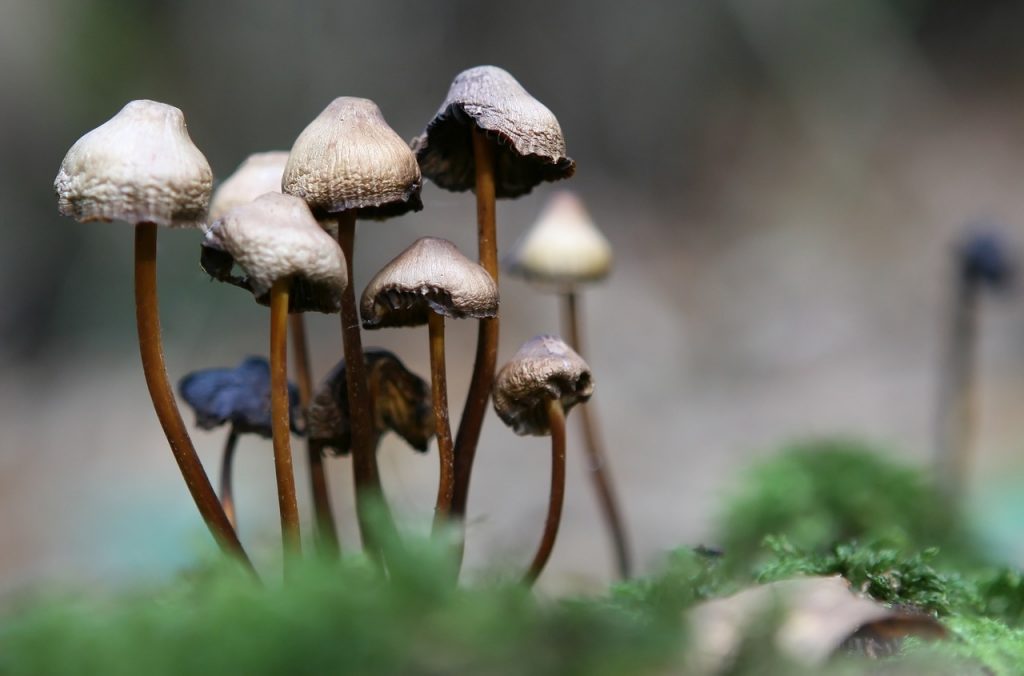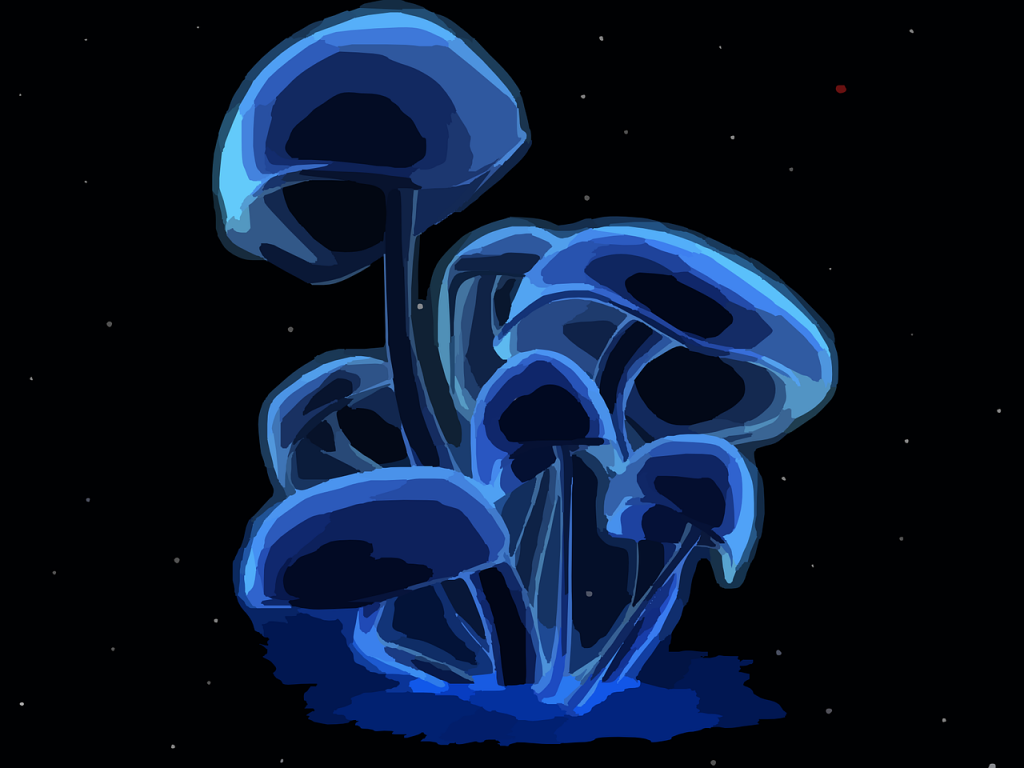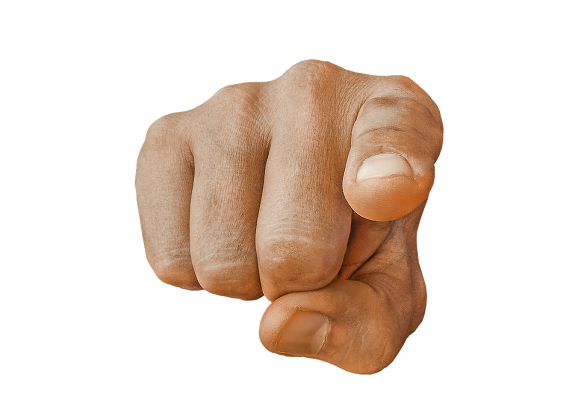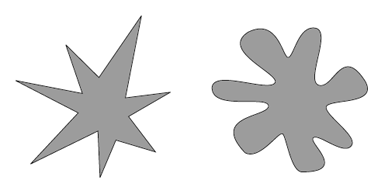The Magic of Magic Mushrooms
I learned more about my brain and its possibilities in the five hours after taking these mushrooms than I had in the preceding 15 years of studying and doing research in psychology. — Timothy Leary, Harvard Professor after first consuming “magic mushrooms”
Although you may have no interest in trying them, it’s hard not to be intrigued by the effects of psychedelic drugs. From movies to television to really really abstract art, the influence that these drugs can have are rather…well, psychedelic.
However, back in 1970, President Nixon passed the Controlled Substances Act, not only criminalizing the possession of psychedelic drugs, but also making it illegal to research them.
So, in sticking it to ol’ Nixon, today, let’s talk about the history and science of one of humans’ most favorite hallucinogens.
PSILOCYBIN (“MAGIC MUSHROOMS”)

Not until 1957, though, after two botanists traveled to Central America, did this drug make it into the mainstream. In a Life article titled, “Seeking the Magic Mushroom,” these botanists described their experience taking the drug in a Mazatec ritual in Mexico. And subsequently, the general public became fascinated with this fantastical fungus.
However, “magic mushrooms” soon became a symbol of the counterculture movement in the 1960’s and 70’s, so when Nixon began banning drugs to suppress those hippies, this drug made his illegal substances list. And from there, our understanding of the chemical compound was condemned to decades of mystery…
THE MAGIC FROM THE MUSHROOMS
Now, for those who have ingested the drug, they describe feelings of euphoria, visual hallucinations (e.g., still images moving or rearranging), connectedness with the world around them, heightened gratefulness, and even mystical or spiritual encounters.
In fact, in one of the first studies on psilocybin (the active ingredient in these mushrooms), ten protestant divinity students consumed the drug, while another ten consumed a placebo. And amazingly, 9 of the 10 who took psilocybin went on to become ministers (compared to the 0 of 10 who took the placebo).

But 25 years later, follow-up research found that the majority of those divinity students who actually took psilocybin cited the experience as one of the most impactful and meaningful experiences of their lives.
EXPLAINING THE MAGIC
With the development of technology over the years (and less overall opposition to drug use), researchers have been able to better understand how these mushrooms have their effects. For example, researchers find that taking this drug “quiets” a network of brain regions that is otherwise particularly active in depressed patients.
In fact, when comparing brain scans, those on psilocybin look similar to those in a deep meditation. That is, psilocybin helps people focus on the present moment, producing similar effects that mindfulness training does. At the same time, though, this drug also helps improve “emotional responsiveness.”

But this is where the twist comes: After people consume psilocybin, they report a greater willingness to accept those emotions, even the bad ones like depression, boredom, or anxiety. Whereas previous treatments encourage patients to avoid these negative emotions, psilocybin encourages the person to embrace and confront those emotions.
And the clinical consequences are astounding.
In two recent studies, researchers either gave psilocybin or a placebo to late-stage cancer patients in a controlled, laboratory study. Later, at a 6-month follow-up, more than 80% of people who took the real drug reported “moderately or greater increased well-being [and] life satisfaction.” Indeed, taking psilocybin led to significant reductions in clinical depression, anxiety, and existential distress.
So, are magic mushrooms the wonder drug we’ve been waiting for? Only more research can tell…
Magically,
jdt
Everyday Psychology: Although I do not endorse taking these drugs in any form of self-medical treatment, the results of these latest studies are hard to ignore. However, are there effects from magic mushrooms that we can replicate through other means? For example, if magic mushrooms lead to greater emotional acceptance, what psychological tricks can we use to accomplish the same aims? What about gratefulness? Or meditation more broadly?
Griffiths, R. R., Johnson, M. W., Carducci, M. A., Umbricht, A., Richards, W. A., Richards, B. D., … & Klinedinst, M. A. (2016). Psilocybin produces substantial and sustained decreases in depression and anxiety in patients with life-threatening cancer: A randomized double-blind trial. Journal of Psychopharmacology, 30(12), 1181-1197.
Ross, S., Bossis, A., Guss, J., Agin-Liebes, G., Malone, T., Cohen, B., … & Su, Z. (2016). Rapid and sustained symptom reduction following psilocybin treatment for anxiety and depression in patients with life-threatening cancer: a randomized controlled trial. Journal of Psychopharmacology, 30(12), 1165-1180.








Jake, Just in case you can use one more story: http://www.psypost.org/2018/01/psychedelic-mushrooms-reduce-authoritarianism-boost-nature-relatedness-experimental-study-suggests-50638
Here’s hoping the mushroom farmers get to cranking before Gig Pharma steals the show.
Make that “Big” Pharma!
Oh whoa! That’s a cool article. I subscribe to psypost, but I hadn’t seen that one yet. Thanks for sharing 🙂
And yes, hopefully Big Pharma is quivering a little after all the research has been showing the miraculous benefits of other natural drugs (e.g., marijuana, mushrooms). It’s sad that they’ve ruined so many lives (of course helping some, too) in order to simply perpetuate their corrupt money machine…
A *friend* of mine has been using magic mushrooms regularly to microdose and done a few deeper trips. Everything you’ve said is true, my friend’s life is much improved now and he gives a portion of the credit to these little guys. His name is Mr. Shroomstein. Gratitude is up. Mindfulness is up. Health is up. Caffeine use is down. Depression is down. Anxiety is down.
Haha A “friend” of mine has also tried them and reported back on their psychological benefits. I’m glad to hear they’ve been valuable! More broadly, I’ve heard microdosing is a popular strategy for a number of these psychedelics (e.g., apparently tech gurus in Silicon Valley have taken to microdosing with LSD)
Microdosing is the new thing, or simply one of the new things. Nootropics are an interesting topic that I’ve dabbled in but not done too much with them. A great time to be alive for sure
I’ve heard about nootropics myself, but I haven’t found a whole lot of empirical evidence to support them. Nonetheless, it’s a great time to be around indeed 😉
A way interesting topic Jake. Worthy of further pursuit!
I’m glad you enjoyed it! The topic’s become popular in the media with recent research, so I thought I’d give it a little feature myself